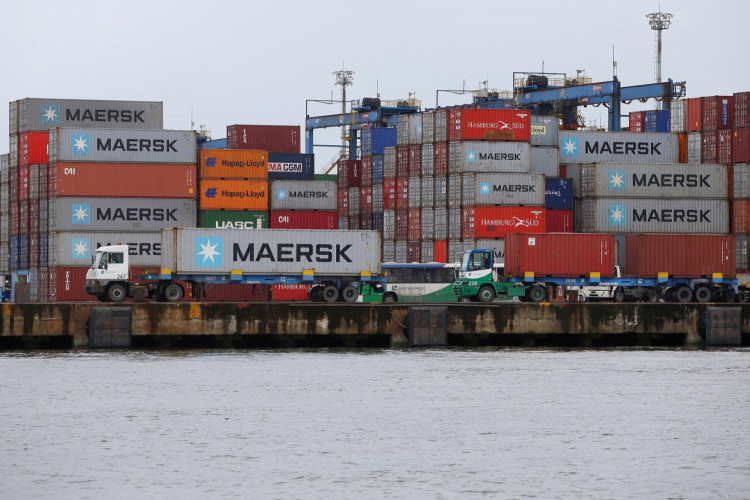The global shipping industry is facing a significant downturn, with container shipping giants like A.P. Moller-Maersk feeling the pressure. Maersk, the world's second-largest shipping company, recently announced a substantial drop in revenue in its third-quarter earnings report, revealing the stark realities of declining freight rates and reduced cargo volumes. This has led the industry leader to initiate drastic measures, including plans to cut 10,000 jobs, reflecting the broader challenges faced by the shipping sector.
Maersk's third-quarter report indicates a steep fall in revenue to $12.1 billion from $22.8 billion in the same period last year. The core of its operations, the ocean shipping business, reported a loss before interest and taxes, marking a significant departure from the prosperity the industry enjoyed in previous years. The average freight rate plummeted by 58% to $2,095 per FFE, a figure that aligns with the broader industry trend of falling freight rates.
As Maersk's CEO Vincent Clerc analyzed, the industry is grappling with a "slump in demand, freight rates returning to historical levels, and inflationary cost pressures." This "new normal" has seen overcapacity on most global routes leading to a continuous decline in freight rates. Despite the third quarter typically being the peak season for shipping, the anticipated surge in cargo volume and freight rates failed to materialize this year.
With the profitability eroding, Maersk has turned to cost-cutting measures to mitigate losses. The company has been working on controlling costs, with a significant reduction in the cost per container for fixed fuel prices. However, these measures have not sufficed to counter the steep decline in revenue, prompting Maersk to announce a workforce reduction from 110,000 to below 100,000, a move expected to save around $600 million in sales, general, and administrative expenses in 2024.
Maersk's plight mirrors the broader industry challenges. Other leading shipping companies, including COSCO Shipping and Ocean Network Express, have reported significant declines in revenue and profits. Industry forecasts predict that while the global container shipping industry might post an EBIT of $20 billion in 2023, it is projected to face a loss of $15 billion the following year, signaling tough times ahead.
In response to these challenges, Maersk maintains its full-year earnings forecast for 2023 but expects performance to be closer to the lower end of the projected ranges. The company is bracing for a market that has reached a breakeven point, with freight rates on critical routes like Asia-Europe falling below the thousand-dollar mark and dropping below the profit point.
As the industry adapts to this new reality, companies are reevaluating their strategies and operations. The job cuts at Maersk are a stark reminder of the industry's volatility and the need for resilience and adaptability. The downturn is not just affecting the giants but is indicative of broader shifts that could reshape the shipping industry's landscape in the years to come.





